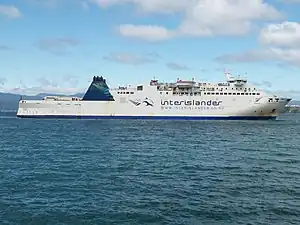Jumboisation
Jumboization is a technique in shipbuilding consisting of enlarging a ship by adding an entire section to it. By contrast with refitting or installation of equipment, jumboization is a long and complex endeavour which can require a specialized shipyard.


Enlarging a ship by jumboization allows an increase in its capacity and revenue potential without needing to purchase or build an entirely new ship. This technique has been used on cruise ships and tankers, as well as smaller vessels like sailing or fishing ships.[1]
Methods
Large ships often have a long midsection with a uniform profile. In such cases, the ship is cut in two pieces and an additional section is inserted in between. This operation must be performed in a drydock .
On large ships, the additional sections are typically 20 to 30 metres long, consisting of an oil tank, a cargo ship hold, or a group of cabins, depending on the type of ship. The tanker Seawise Giant became the largest ship in the world after her jumboization.
Smaller ships are usually jumboized by replacing the entire bow or stern section of the ship. This is done because the shape of their hull is usually incompatible with the previous method.
See also
References
External links
- Jumboisation/Body Swapping at Keppel Shipyard